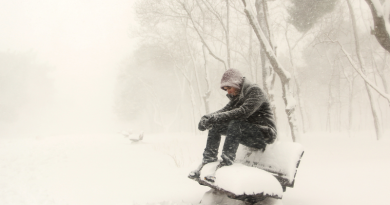Brené Brown on blame
(Awaken | Brené Brown) Now I don’t think of myself as a blamer- but as I watched this video I began to wonder about what happens when blame is directed inward.
What blame does inside with you
In the video Brene says that as a blamer she’d rather something be her fault than no ones fault, because it gives her a semblance of control. As a coach I work with a lot of people who abstain from holding others accountable and who would in most cases prefer to blame themselves in order to avoid mustering the courage and risking the vulnerability it would take to have a conversation with the other person. Taking the blame inward is one form of conflict avoidance, but it has some of the same effects as blaming others—namely that it is still corrosive to relationships, including our relationship with ourselves.
The idea of taking responsibility for 100% of what happens to us in life is a bit of wisdom found in a variety of different self-help processes, from “7 Habits of Highly Effective People” to “The Secret.” Yet I have seen it applied dogmatically or as a default, often as a way of avoiding accountability oneself or as a way of avoiding holding others accountable.
Intimacy in relationship requires that we repair ruptures. But these kinds of conversations require both the willingness to be vulnerable and the desire to empathize with the experience of another. Balancing taking responsibility ourselves and holding a partner or friend accountable is tricky business, but as a practice it leads to greater intimacy.
Key insights
The video is short, but in case you didn’t watch it here are the key insights from this video and the research it was based on:
- Blame is corrosive in relationships
- Blame is the discharging of pain and discomfort
- Blame has an inverse relationship with accountability- meaning we blame others in order to avoid having a vulnerable conversation or having to take responsibility ourselves
- People who use blame regularly “lack the tenacity and grit to hold people accountable”
- Blame gives us a semblance of control
- Accountability is a vulnerable process that requires communication about something that hurt or didn’t work for us
- Blame is one of the reasons we miss our opportunities for empathy
Key questions
If this video or discussion strikes a chord for you some key questions you may want to ask yourself/journal about are:
- Do I have a pattern of blaming myself or others when things “go wrong?”
- Am I afraid of causing conflict or rocking the boat in my relationships?
- Do I need to cultivate greater courage to speak my truth in relationship?
- What am I afraid will happen if I tell someone that something hurt or didn’t work for me?
- Am I afraid of being out of control? Can I cultivate more comfort with the unknown and what is out of my control?
- Do I have questions about my own self-worth that make it scary to speak up about my needs?
Source: Awaken
You may also like:
Top 10 toxic people to avoid at all costs
The art of nonviolent communication




